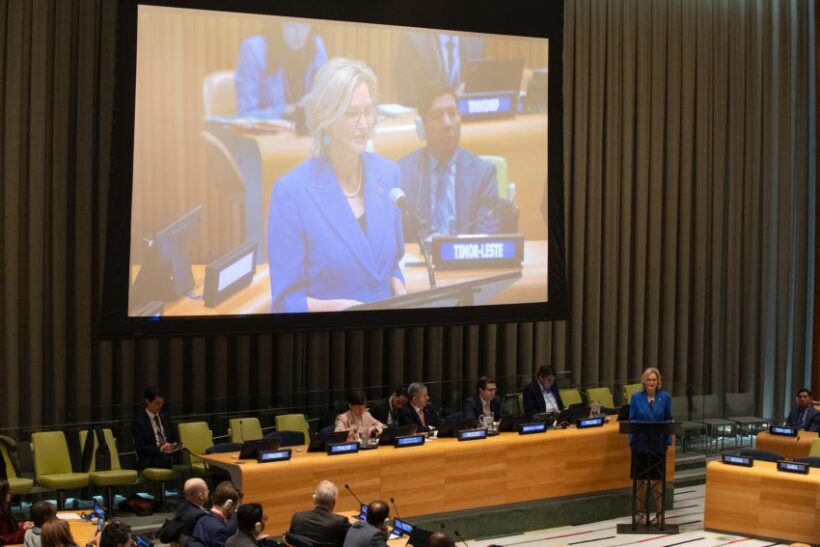The first day of the second meeting of States Parties to the Treaty on the Prohibition of Nuclear Weapons opened on Monday 27 November at 10 a.m. and lasted all day at the United Nations headquarters in New York.
The second meeting of the States Parties runs from 27 November to 1 December with Mexico as chairman.
During the morning meeting, the President emphasised that the risks of a nuclear catastrophe are real and increasing due to the modernisation of the arsenals and the current geopolitical tensions, so this meeting becomes a milestone in stopping and reversing the current course. The work of civil society provides an extraordinary force to realise the articles discussed in Vienna.
The Vienna plan is the guiding light to continue with the many actions underway despite the fact that the treaty is relatively young: the fact that we can talk about it in the UN headquarters in NYC gives us the measure of the multilateral effort underway.
The President pointed out that a group of nuclear scientists had also been invited to this meeting.
A message from António Guterres is read out: the Secretary-General emphasises that, as the NPT seems to be in trouble, the TPNW becomes focal to give a new impetus to global nuclear disarmament, to involve more and more countries to sign and ratify it, including those that are members of the NPT.
The presence of observer countries becomes a key step towards this goal.
The Permanent Representation of the Red Cross to the UN declares that the campaign to abolish nuclear weapons should include all types of nuclear weapons, including tactical ones, as every nuclear explosion generates deleterious impacts on populations and the environment.
This was followed by speeches by the Minister of Kazakhstan, the Republic of Congo, Cuba and a Japanese representative, all focusing on Articles 6, 7 and 12 of the treaty (https://documents-dds-ny.un.org/doc/UNDOC/GEN/N17/209/73/PDF/N1720973.pdf?OpenElement): Article 6 deals with victim assistance and environmental clean-up, Article 7 with international cooperation and assistance, and Article 12 with universality.
The Democratic Republic of Congo also proposes to continue supporting non-proliferation (NPT), diverting the energies and investments planned for the maintenance and modernisation of the current arsenals in favour of the fight against climate change and the prevention of future pandemics.
The Cuban minister adds that Israel’s latest declarations of possible atomic attacks on Iran or Palestine are immoral and irresponsible, given that the TPNW provides us for the first time with an international norm declaring them illegal.
In the afternoon, the consequences of humanitarian impacts related to the use of nuclear weapons are explored through a panel of international scientists who are experts in the field, presenting a series of slides showing radiation fallout and associated impacts.
The session ends with a series of questions posed by delegates (Cuba, Mexico, New Zealand, Costa Rica, Kazakhstan, Austria, Ireland) to the group of scientists.
Sandro Ciani, World Without Wars and Violence






